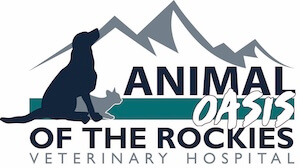What is the difference between dog spaying and neutering?
The difference between spaying and neutering is that spaying is for females and neutering is for males. These are just the terms we use.
Dr. Stacey Huber
Animal Oasis of the Rockies Veterinary Hospital
How does dog spaying or neutering impact the health and well-being of my pet?
That’s an important question, Trinity. Spaying and neutering are crucial. They help control the pet population and prevent some diseases that dogs can develop if left unspayed or unneutered.
How soon should I bring my pet in to see a veterinarian to get spayed or neutered?
It used to be six months across the board for every pet, but now it varies. Dogs come in different sizes and shapes, so we recommend visiting your vet to discuss the best age. Typically, larger dogs are spayed or neutered later, around one or two years of age. For cats, it’s usually around six to eight months of age.
What are possible conditions that can be helped by spaying or neutering my dog?
Spaying or neutering can help with behavioral issues. For example, if your male dog is marking territory or being overly affectionate with toys, neutering can help. There are also medical problems that can be prevented by spaying or neutering.
How will spaying or neutering affect my dog in the future?
It can eliminate some behavioral problems and prevent certain cancers. Female dogs spayed too late can develop mammary cancers, while male dogs can develop enlarged prostates. Spaying or neutering helps prevent these issues.
What will my veterinarian need to know about my dog before spaying or neutering?
The vet will perform a full exam to ensure your dog is healthy. They’ll check if both testicles are descended in males, as this can affect the type of surgical procedure needed. Blood work and a general health check are also necessary.
How long will it take for my dog to recover from being spayed or neutered?
Recovery is usually about a week. It depends on the animal and the procedure, but you’ll need to prevent them from licking the incision and being too active. They may be groggy the first day, but most animals bounce back quickly, often wanting to run around the next day.
What care should I prepare to provide at home while my dog is recovering from their spay or neuter surgery?
It’s very important to keep them quiet. Running or jumping can pop sutures or cause swelling. Keep them sedated, on pain medication, and leash walk them until your vet says it’s okay to let them be active again.
If you have any other questions, please give us a call at (303) 900-7765. You can also email us at [email protected] and we will get back to you as soon as we are able. Don't forget to follow us on social media: Facebook and Instagram
